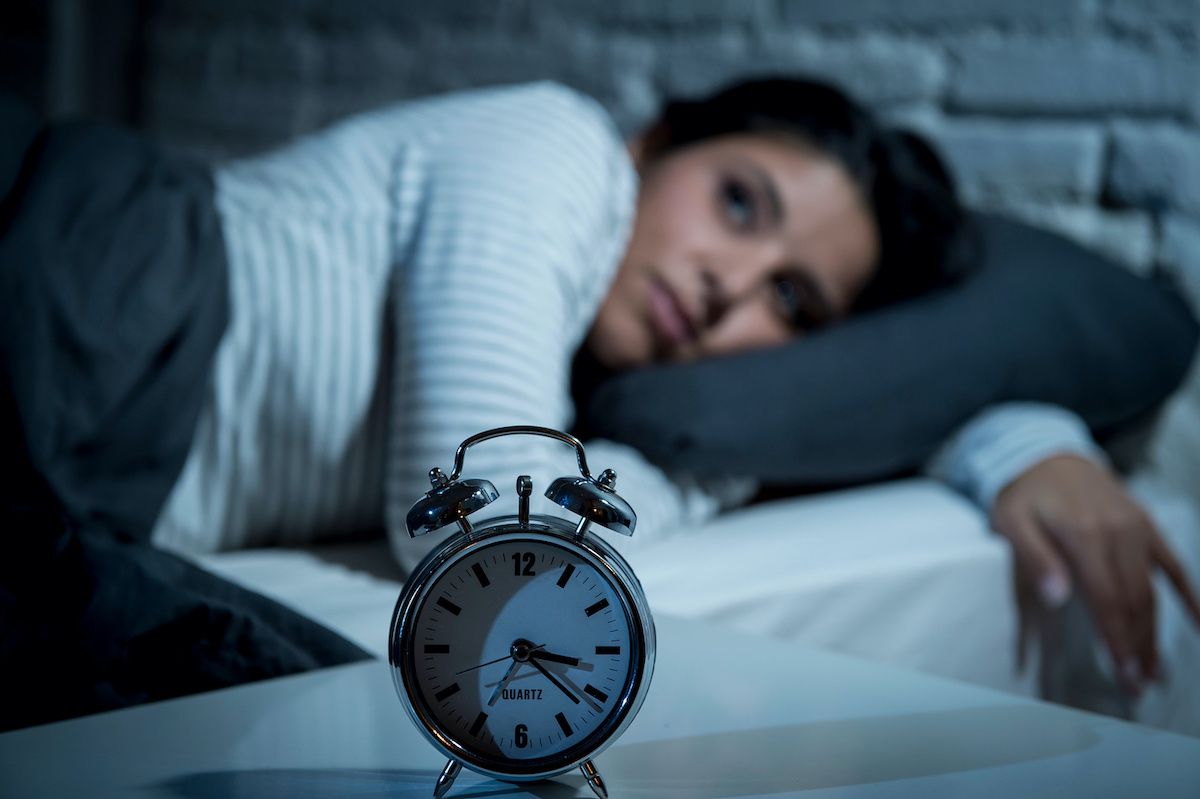Despite battling fatigue, you may find yourself having trouble sleeping. Sleep needs vary by person and circumstance. For example, naps make some folks feel refreshed but makes others feel cranky.
What is healthy sleep?
According to the National Sleep Foundation, healthy sleep means…
- You fall asleep 15-20 minutes after going to bed.
- You usually sleep 7-9 hours in a 24-hour day.
- While in bed, your sleep is mostly continuous — you don’t have long periods of lying awake.
- You wake up feeling refreshed and alert and can be productive while awake. (It’s OK if you have periods when you are less alert as long as your alertness returns.)
- Your partner or family members don’t notice any disturbing or unusual behavior from you while you sleep (snoring, breathing pauses, restlessness or other nighttime behaviors).
What are the consequences of poor sleep?
- Extra stress on your immune system, which means you’re at a higher risk of infection
- Mood swings, weight gain
- Problems with memory, concentration and decision making
- Problems with daily activities and relationships
- Chronic illnesses such as diabetes, heart disease and high blood pressure
Given the short time we spend with our healthcare providers, sharing a common definition of a word can make it easier for patient and provider to understand each other. Medical terms can be more precise, but we don’t think that way. (When is the last time you complained about feeling asthenic?) Here are a few common words and definitions from sleep medicine experts to help you talk with your provider.
Sleepy describes the feeling you have when you could close your eyes right now and fall asleep. Extreme relaxation may make you sleepy (even if you are not tired).
Tired describes the feeling of decreased strength after you have exerted yourself, either physically or mentally.
Exhausted describes the feeling of being extremely tired or a severe loss of strength.
Fatigued describes the feeling of deep weariness or exhaustion; a state of physical and/or mental weakness.
Cancer-related fatigue is a deeper, longer-lasting fatigue, and usually sleep and rest do not provide relief. It may interfere with your ability to carry out your normal daily activities and it may become chronic. Learn more about this condition and how to manage it.
While helpful, these definitions are not universal, so be as detailed as possible when you see your provider. It may be better to use the definitions instead of the single term. Tell your provider how you are feeling and how it affects your activities, memory and concentration. Ask your doctor if a referral to a fatigue management program would be helpful. At Roswell Park Comprehensive Cancer Center, this program is housed in the Rehabilitation Services Department.
How to improve the quality of your sleep
Create sleep inducing routines
- Keep a sleep schedule. Go to bed and get up at the same time every day – weekends and holidays included.
- Drink a warm beverage that does NOT contain caffeine, such as herbal tea, before going to bed
- Make a routine to help your body and mind relax and get ready for sleep. Try taking a bath, listening to music, or drinking a glass of milk.
- Turn off the TV, laptop, smart phones, etc. at least one hour before going to bed. Some people find that even the night light of digital clock disturbs them.
- Have a light snack an hour or two before bed. Best combination is a carbohydrate plus a protein. (Crackers with peanut butter or cheese, or plain Greek yogurt with fruit. Dairy products contain tryptophan, which may help make you drowsy. Tryptophan is an amino acid that the body cannot make on its own – you have to get it through your diet. Tryptophan is key to your metabolism and affects mood, mental processes and behavior.)
- Avoid large or heavy meals, caffeine and alcohol before bed.
- Avoid or limit napping. If you don’t fall asleep after 15 minutes go to another room.
- Avoid stimulating activities.
Never miss another Cancer Talk blog!
Sign up to receive our weekly Cancer Talk e-newsletter.
Sign up!Prepare the bedroom for better sleep
- Only use the bedroom for sleep and sex.
- Keep your bedroom dark and cool, about 65°F (18.3°C). If you can’t get the room dark, try wearing a sleep mask.
- Use a good, supportive mattress.
- Play low, soft, soothing music. If you’re not a music fan, use ear plugs or headphones to block noise.
Improve lifestyle activities
- Practice mindful meditation, relaxation techniques, tai chi, or yoga
- If you feel pressured by watching the clock, turn it around.
- If it's OK with your doctor, try some mild to moderate exercise during the day, such as taking a 20-minute walk most days. Exercise will help keep you up during the day, lessen stress, improve your mood and may also help with sleep problems.
- Quit smoking.
- Get fresh air. Take your walk outside. If you can’t sleep because of pain, make sure you are taking your medication exactly as prescribed. If this is not helping your pain, talk with your health care provider. Ask your doctor or pharmacist if you are taking your medications at the right times of the day. For example, it is best to take steroids in the morning.
Additional reading
- Cancer-related Fatigue: Patient education from Roswell Patient Education Department.
- Tips to Manage Fatigue: Patient education from Roswell Patient Education Department.
- National Sleep Foundation: The National Sleep Foundation is an American non-profit charitable organization.


